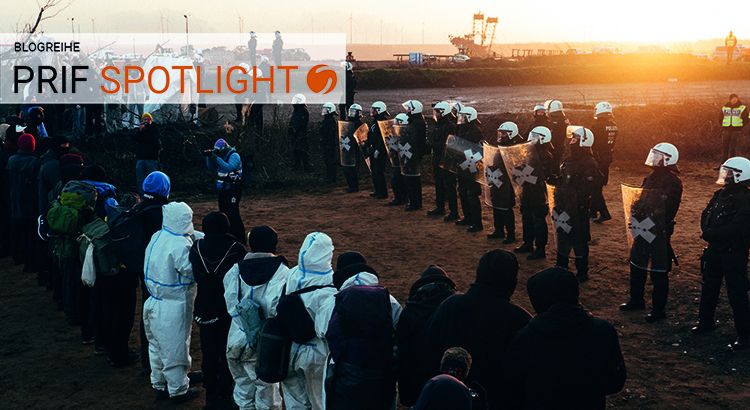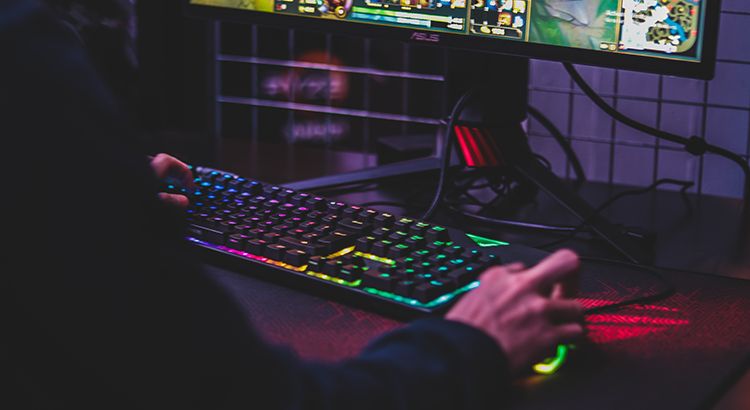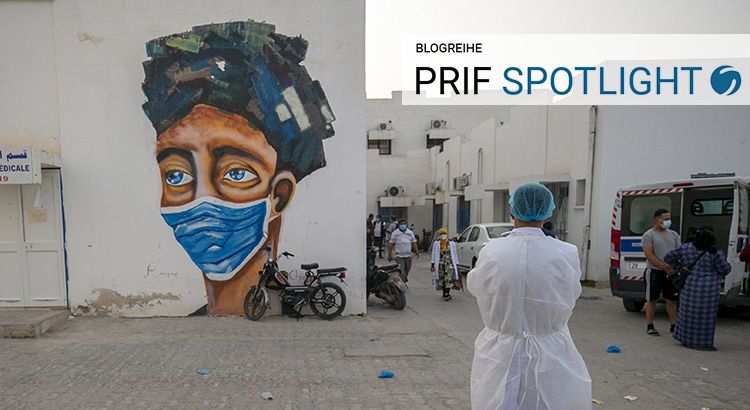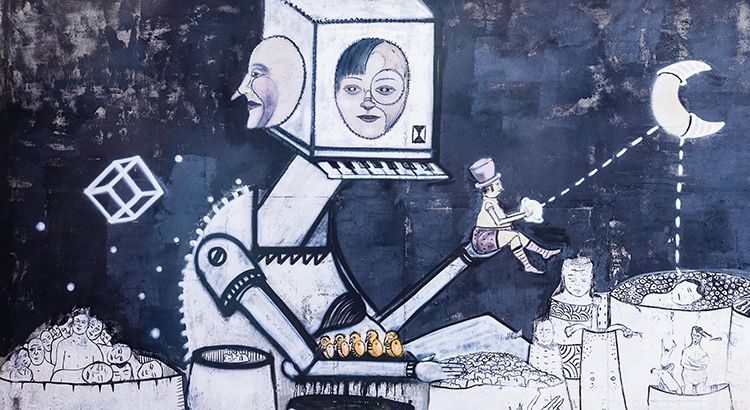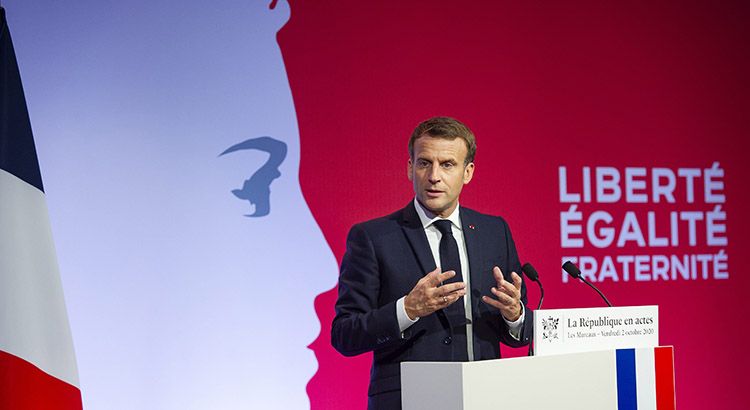Schlagwort: Radikalisierung
Wie mit dem Klimawandel umgehen, das wird aktuell intensiv diskutiert. Die Klimabewegung betont die Notwendigkeit einer globalen, sozialen und ökologischen Transformation, dafür intensiviert sie den Protest auch in Deutschland. Zunehmend stehen Aktionen des zivilen Ungehorsams im Zentrum. Im Raum steht der Vorwurf der Radikalisierung in die Gewalt, aktuell ist dieser allerdings unbegründet: Die Bewegung entfaltet sich auf dem Terrain des Demokratischen, verleiht der legitimierten Forderung nach Einhaltung des 1,5-Grad-Ziels von Paris Nachdruck und skizziert Visionen aus der Krise heraus.
Verfolgung und Prävention von Hasskriminalität im Internet: Benötigt es „mehr Polizei“ in Sozialen Medien?
Der Umgang mit Hassrede, Hasskriminalität und gefährdenden Radikalisierungsprozessen im Internet bildet eine zentrale Herausforderung der Kriminalpolitik im „digitalen Zeitalter“. Innen- und Justizbehörden, insbesondere aber die Polizeien stehen in der Kritik, zu wenig gegen Hassdelikte im Internet zu unternehmen. Bemängelt werden ein unzureichender Personaleinsatz und in der Fläche mangelhafte Expertisen von Polizeibeamt*innen für das Feld der Internetermittlungen. Insgesamt fehle es an einer „digitalen Polizeistrategie“. Doch wie ist der Status Quo der Strafverfolgung von Hasskriminalität im Internet? Welche Herausforderungen stellen sich aus kriminologischer Sicht und welche Lösungsansätze gibt es, um die Strafverfolgung zu verbessern?
„Wutwinter“, heißer Herbst und Klimakrise: Ohne sozial-ökologische Vision erstarkt die extreme Rechte
Die Energiekrise stellt die Gesellschaft vor große soziale und politische Herausforderungen. Intensiv wird über den kommenden „Wutwinter“ und heißen Herbst diskutiert, während erste Proteste bereits stattfinden. Protest ist nichts Negatives und gehört zur demokratischen Willensbildung. Es gilt aber das Protestgeschehen auf den demokratischen Gehalt zu befragen und Initiativen von Links und Rechts nicht über einen Kamm zu scheren. Erneut droht, wie schon bei Pegida und den Corona-Protesten, die extreme Rechte von der gesellschaftlichen Stimmung zu profitieren. Um hier entgegenzuhalten, könnte es helfen, die Diskussionen um die Energiekrise von dem Fokus auf Russland zu lösen und umfassender im Kontext der Klimakrise zu verhandeln.
As You Like It: User Types in Digital Gamified Radicalization Processes
Since the Christchurch attack in 2019, it is explored how games, gaming spaces, gamification, and violent extremism are potentially linked and how gaming-related content may influence digital radicalization processes. However, both the theoretical and empirical basis to understand this influence are underdeveloped. This blog post adds to the theoretical foundation of a “gamification of radicalization” by presenting five ideal user types and their potential interaction with gamified extremist content.
Is the Worst Yet to Come? Consequences of the COVID-19 Crisis and its Management in the Maghreb
Soon after the global outbreak of the COVID-19 pandemic, concerns were raised about its potential to exacerbate violent extremism and radicalization. Based on the findings of a EuroMeSCo Policy Study and focusing on the Maghreb states, this Spotlight argues that while the pandemic undoubtedly had serious consequences, there is so far no empirical evidence of a direct “COVID effect” on the activities of violent extremists beyond references to the pandemic in propaganda. In light of this, the article makes the case for broadening the debate to also take more indirect aspects such as the states’ crisis management and the emerging socioeconomic consequences into account.
Telling tales against the dark arts: How fictional storytelling could support narrative campaigns against extremism
While Harry Potter and his friends could use their magic abilities to defend the world against the dark arts, efforts against radicalization and extremism in the real world must rely on non-magic skills, most prominently (strategic) communications. Narrative campaigns challenging extremist ideas and propagating positive, alternative visions are an increasingly important tool in the efforts to prevent and counter radicalization. So far, however, such campaigns have largely omitted fictional elements, despite ample evidence that fictitious stories hold considerable persuasive power and have inherent benefits that could support narrative efforts against extremism.
Let’s play prevention: Can P/CVE turn the tables on extremists’ use of gamification?
In the wake of the attacks in Christchurch, El Paso and Halle, the so-called ‘gamification of terror’ has made headlines and sparked academic interest in the potential role of gamification in radicalisation processes. Most recently, the Radicalization Awareness Network (RAN) has discussed both videogames and gamification as potential facilitating factors of radicalisation in the EU. This blog article is based on the new RAN Paper “The Gamification of Violent Extremism & Lessons for P/CVE”.
Missing an epic story: Why we are struggling to counter extremists’ utopian narratives
Contrary to popular opinion, extremist communication is not simply based on hatred and calls for violence. While beheading videos or livestreamed shootings may generate attention, displays of violence alone are an insufficient basis for an extremist ideology and claims of legitimacy. Utopian narratives – visions for the perfect society – are an indispensable element of propaganda efforts. Without detailing what one is fighting for, an essential part would be missing from the web of extremist ideological communication. While the last years have seen an increase in narrative campaigns designed to delegitimize extremist ideologies and provide alternative worldviews, pro-democracy narratives struggle with responding to the utopian visions propagated by extremist actors.
Radikalisierung und Terrorismus – in Buchform unter den Weihnachtsbaum?
Die Themen Extremismus, Radikalisierung, Terrorismus und Terrorismusbekämpfung sind aus der gesellschaftlichen Debatte in Deutschland nicht mehr wegzudenken. Diese findet oftmals in einem Modus der Aufgeregtheit statt, sodass wichtige wissenschaftliche Erkenntnisse, Differenzierungen und Querverbindungen sowie kritische Blickwinkel auf diese Phänomene nicht immer angemessen berücksichtigt werden. Die Forschungsgruppen Radikalisierung und Terrorismus stellen deshalb eine kleine Liste von lesenswerten Werken im Feld zusammen. Und während es zunächst so scheinen mag, als wären die Themen wenig für die besinnliche Zeit geeignet, so sprechen sie doch große Herausforderungen gesellschaftlichen Wandels zugänglich an – und tragen somit zu besser informierten Debatten bei: ein Geschenk für alle. Wir wünschen eine entspannte Zeit mit spannenden Büchern!
Macron’s plan for fighting Islamist radicalization – and what Germany and other European countries should and shouldn’t learn from it
On October 2nd French president Macron presented a five-point plan to address Islamist radicalization. The long awaited speech sparked debates in France and beyond. In Germany, some called it “historic” and a “wake-up call”, demanding a similar set of initiatives and central speech for the German debate. This is problematic for two reasons: first, while many measures in Macron’s plan are promising, others and the overall framing of the speech can prove counterproductive in terms of stigmatization and securitization. Second, the French centralist approach cannot and should not be transferred to the German federal and civil society-based system of preventing extremism.
